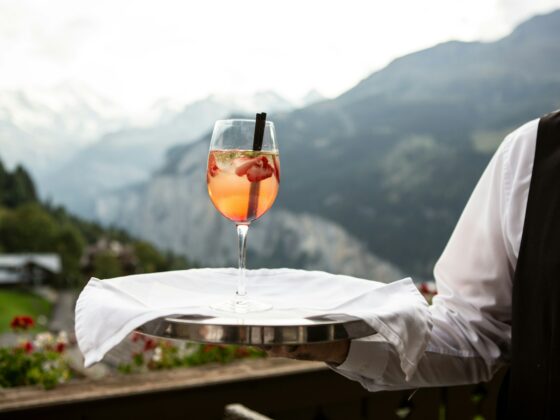Let’s get this out of the way: HBO’s The White Lotus is not a hospitality show. It’s a show about the rich behaving badly—on vacation. But that’s exactly why it should be required viewing for every hotelier, concierge, and guest services manager clinging to the last shreds of their sanity.
Because buried beneath the satire, sexual tension, and suspiciously convenient deaths lies something all of us in hospitality know to be true:
A hotel is never just a building.
It’s a stage. A therapy session. A battleground. A confessional. A Tinder date with room service. A cathedral of delusion. A front-row seat to the psychological drama of the human condition.
And The White Lotus nails the uncomfortable, hilarious, sometimes tragic truth of what really happens when you mix strangers, status, and a pool with cabanas.
Here’s what the show gets right (and what we’d better start paying attention to):
1. Hospitality is performance art.
Remember Armond? The resort manager with the pearly smile and unraveling sanity? His descent wasn’t just dramatic—it was disturbingly accurate. Because when your job is to make entitled guests feel like they’re the only person on Earth, every day is opening night.
What’s your costume? What’s your script? How long can you keep the show going before you break character?
Hospitality is improv with high stakes. You don’t get second takes. There’s no dress rehearsal. And the audience? Brutal. They rate you online.
The real ones know: You don’t work at a hotel. You perform in one.
And the curtain never drops.
2. Guests are needy, messy, complicated humans.
This might come as a shock, but the guest is not always right. Especially when they’re bringing a suitcase full of unprocessed trauma to a beachfront suite and expecting your staff to be both bartender and therapist.
We’re not just dealing with travelers anymore. We’re dealing with seekers. Pilgrims on a personal journey of reinvention. And we’re the accidental shamans.
Today’s guests aren’t just looking for a place to stay. They’re craving transformation. Escape. Healing. A storyline.
And when they don’t get it? Cue the passive-aggressive Yelp reviews, vague threats about TripAdvisor, and that classic line: “I just thought it would feel… different.”
We need to stop designing experiences for imaginary perfect guests and start preparing for the beautifully flawed ones who actually show up.
3. The help has a story, too.
In The White Lotus, the staff aren’t just wallpaper. They’re whole human beings—often more layered than the guests they serve. And yet, how many hotels treat their teams like interchangeable parts?
If your team doesn’t feel seen, heard, or respected, don’t expect them to deliver magical moments. Hospitality starts behind the front desk.
Don’t preach empathy to guests if you don’t practice it with your people. Don’t chase Forbes stars while your housekeeping team burns out.
You want better guest experiences? Start by creating better employee experiences. Culture isn’t a line in a handbook. It’s a vibe. And vibes are contagious.
4. Design alone won’t save you.
Beautiful hotels are everywhere now. But beauty without soul is just set dressing. It’s an empty theater with very expensive props.
The White Lotus resorts are stunning. But it’s the tension, drama, and emotional chaos that make them unforgettable.
What makes your hotel unforgettable? The lighting? The thread count? Or the way your bartender remembers how she likes her Negroni—spagliato, with Prosecco? The secret menu only regulars know about? The quiet note left behind by a night auditor who knew it was their last shift?
Atmosphere matters. But without intention, it’s just Instagram fodder.
5. Be the guide, not the hero.
Guests don’t want to be rescued. They want to be understood. They want someone to say, “I see you. I got you. And yes, the boat leaves at 8 sharp.”
The role of the modern hotelier isn’t to impress. It’s to tune in. To read between the lines. To offer what’s not on the menu. To know when to lean in—and when to disappear.
Our job is not to dazzle. It’s to connect. Subtly. Quietly. Expertly.
That’s hospitality. Not a marble lobby. Not an NFT art installation in the hallway. Not a turn-down service so robotic it forgets the human sleeping in the bed.
The White Lotus is absurd, yes. But it’s also a funhouse mirror reflecting everything the industry needs to reckon with: transactional service, emotionally bankrupt leadership, and the ever-widening gap between guest expectations and reality.
If we’re paying attention, it’s telling us the truth:
Hotels aren’t just where people sleep. They’re where people become. Sometimes better. Sometimes worse. Sometimes just more confused—but with a better tan.
And if you’re not in the business of transformation?
You’re just running a very expensive box with sheets.
Longing for belonging,
—Bashar Wali






